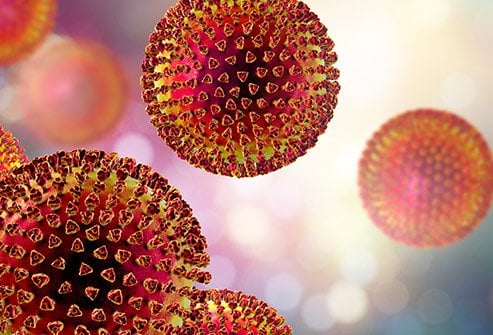The Ghana Medical Association (GMA) says 14 Lassa Fever cases have so far been confirmed in the country.
Those affected include some doctors and other health workers exposed in their line of duty.
The GMA in a statement issued Wednesday, said while it acknowledges measures being put in place to trace their contacts and contain the virus from spreading further, it is also “facilitating the provision of psychological support to the colleagues confirmed with the disease,” and counselled the public to take precautionary measures.
“The virus spreads to humans through contact with food or household items contaminated with the urine or faeces of mice. It also spreads from one person to the other through direct contact with bodily fluids e.g. urine, blood, faeces or contaminated clothes and beddings of an infected person.
“This risk of spread among health professionals is high when infection prevention and control (IPC) protocols are not adhered to during the care of patients.”
Symptoms of Lassa Fever
Most people infected with the virus may present with mild symptoms or may be asymptomatic.
The early symptoms of Lassa fever are non-specific and usually includes fever, general malaise, weakness, and headache.
Other symptoms may include sore throat, muscle pain, chest pain, nausea, vomiting, diarrhoea, cough, and abdominal pain.
Severe cases may present with bleeding from the mouth, nose, vagina or stomach.
Treatment
According to the GMA, while no vaccine currently offers protection against Lassa Fever, Ribavirin offers good outcomes especially when given early along with other supportive management.
“The GMA is engaging the government to fast-track the mobilization of the drug to ensure its availability for the management of patients.”
Adherence to IPC protocols
The GMA advised its members to adhere strictly to IPC protocols especially regarding the use of PPEs at all times and ensure all other members of the care team do same, particularly in wearing of facemasks at all times at work, frequent hand washing or use of hand sanitisers, use of gloves and avoidance of contact with bodily fluids.
“Members are also urged to have a high index of suspicion for individuals presenting with the signs and symptoms outlined above.”
Latest Stories
-
Lamens flouted some food safety laws in re-bagging rice – Former FDA Boss Alhaji Hudu Mogtari
10 mins -
Afcon exit: Our issue is administrative failure and mismanagement, not lack of talent – Saddick Adams
29 mins -
WAPCo to commence major pipeline maintenance and inspection from November 25
35 mins -
Power crisis: Amandi is off due to maintenance, not debt – ECG Boss
1 hour -
Votes cast for late Akua Donkor to be declared invalid – Electoral Commission
1 hour -
You can’t keep “incompetent” Otto Addo for the long term – Countryman Songo
1 hour -
Joy FM holds 2024 Prayer Summit for Peace
2 hours -
Lady sues Police and AG over assault in custody
3 hours -
Ghana’s railway sector has been revived under my leadership – Akufo-Addo
3 hours -
Next government must enforce C190 – Women Economic Dialogue Forum
3 hours -
NCCE engages party youth activists at Nandom on peaceful election
3 hours -
SSNIT engages stakeholders on its operations
3 hours -
Defilement: 19-year-old farmer jailed ten years, with hard labour
3 hours -
Bawumia to inaugurate new headquarters of Lands Commission on November 25
3 hours -
Sylvester Tetteh denies demolishing GBC staff bungalow
3 hours

